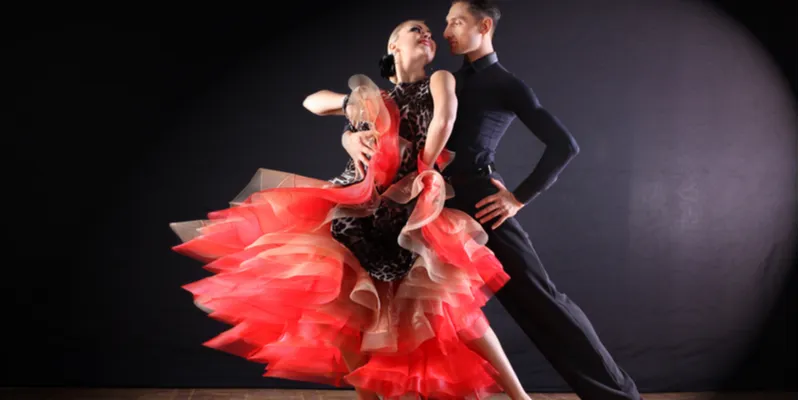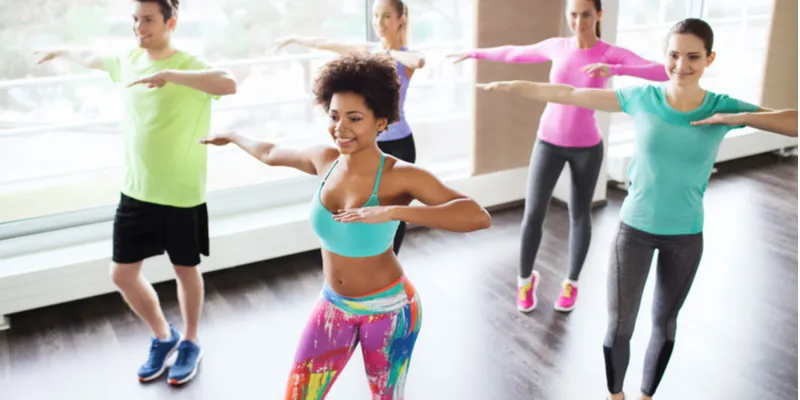Put on your dancing shoes: On International Dance Day, check out the best Latin dance moves
Footwork, body dynamics and emotions play a primary role in dance, says dancer and choreographer, Rajeswari Vaidyanathan on International Dance Day, which falls on April 29
Today, dance has evolved significantly across the globe. While each country boasts of a classical form that has its roots in the culture of that country, we have various free styles and fusions that have been born over time.
The Latin Dance forms are part of the Western Classical dance forms. Many of these dance forms are widely used as a means of recreation for decades after a hard day's work.

Latin Dance has many complex moves
Where dance began
It is nearly impossible to pinpoint the exact date when dancing began. Since civilisation started, dance has been used in religious ceremonies and other celebrations as a means to socialise and communicate with others.
Dance was also used to express emotions, tell stories and explain myths.
Health benefits
Today, dance is seen as a form of exercise that has huge health benefits. It not only works as a great cardio workout but dance forms which are more classical in nature like ballet and Latin Dancesport help in muscle control and toning, core functioning, enhancing balance, which is much beyond what a gym can provide.
Latin Ballroom dance classes have always been very popular. You can meet new people, make friends that last a lifetime and of course, learn a skill.
Popular dance moves
The easiest of the Latin social dancing forms are Salsa, Bachata, Cha Cha and Jive, which we teach at the beginner level (the first four months when our students come in).
Typically, Salsa is clubbed with Cha Cha and Bachata with Jive, which balances fast movements with slower ones and, easier moves with complex ones. This ensures that by the end of four months, our students are well equipped to pick up the complexities of movements of these forms at an intermediate level.
Salsa and Bachata are easier to learn and bring in fun moves while the Cha Cha and Jive are a part of serious Latin dance. These moves help in transforming the quality of dancing.
The Rumba and Samba
The Rumba and Samba are more difficult and complex dances, if done at an international level. Hence for social dancers, these dances can only be taught after at least 6 months of training with us, and only when they are better equipped to grasp the moves and do justice to the footwork that comes with it.
However, for professional and competitive dancers we start with Rumba, which is the mother of Latin dances. It is slow, requiring immense muscle control and dynamics of muscle movements.
Most of those who come to learn this type of dance need to have a strong background in ballet or gymnastics, as a high level of fitness is required for this training.
Paso Doble is radically different from all other forms and is taught last or individually as choreography. The bars and musical interpretations make it quite difficult. It is always a choreographed dance.
Fitness levels

Learning to dance is the best way to stay fit
Fitness implications are huge as mentioned before. Salsa, at a social level, burns 400 calories, a little more than Zumba. Jive, Samba, Cha Cha would offer more calorie burn. In my opinion, a Latin dancer would stand head above shoulders, even when compared to a ballerina, because the demands that this dance form are very great as it brings together ballet, gymnastics and athletics and more.
Dance helps in disease control
We are happy and proud to have brought Latin competitive forms to India along with the social dance forms. Dance, specially the Salsa and Bachata has been used by me to treat Alzheimer patients, where mind and body coordination can help delay the onset of the disease.
We have autistic kids and also those with severe depression and stress. Most of these dances are done in one-to-one sessions to get maximum results. Later, they can join the group classes to socialize, make friends and thus battle the condition.
The best stress buster
Our social dance classes have several top doctors, lawyers and corporates who are very regular as it helps them beat the stress of the week and remain fit at the same time.
For me, dance gives me holistic benefits, because, not only do I get to teach others a skill but it also helps me maintain mind, body and spiritual fitness. I can also get as creative as possible as Latin dance is an improvised dance form within a set structure.
Edited by Asha Chowdary
(Disclaimer: The views and opinions expressed in this article are those of the author and do not necessarily reflect the views of YourStory.)







